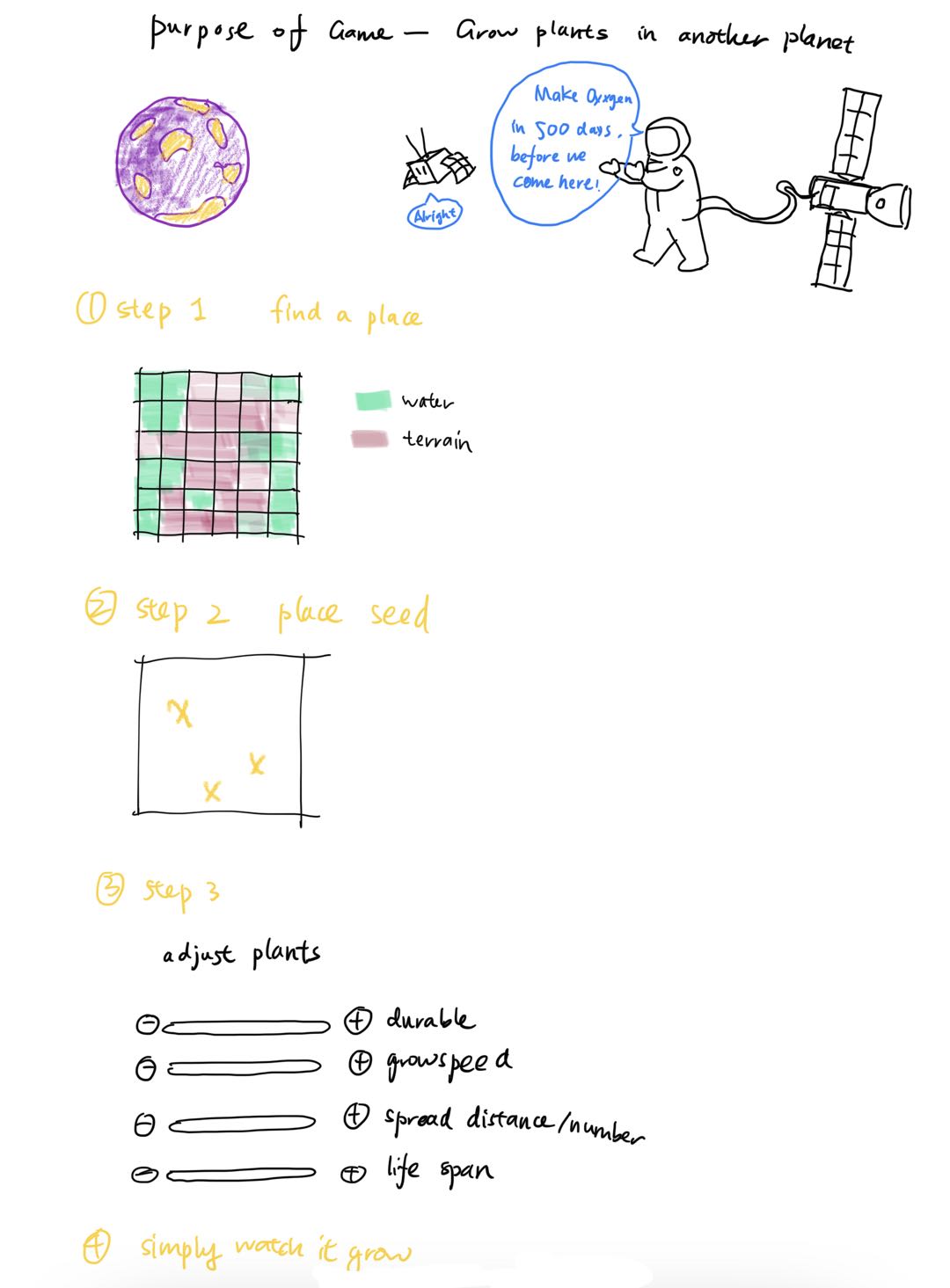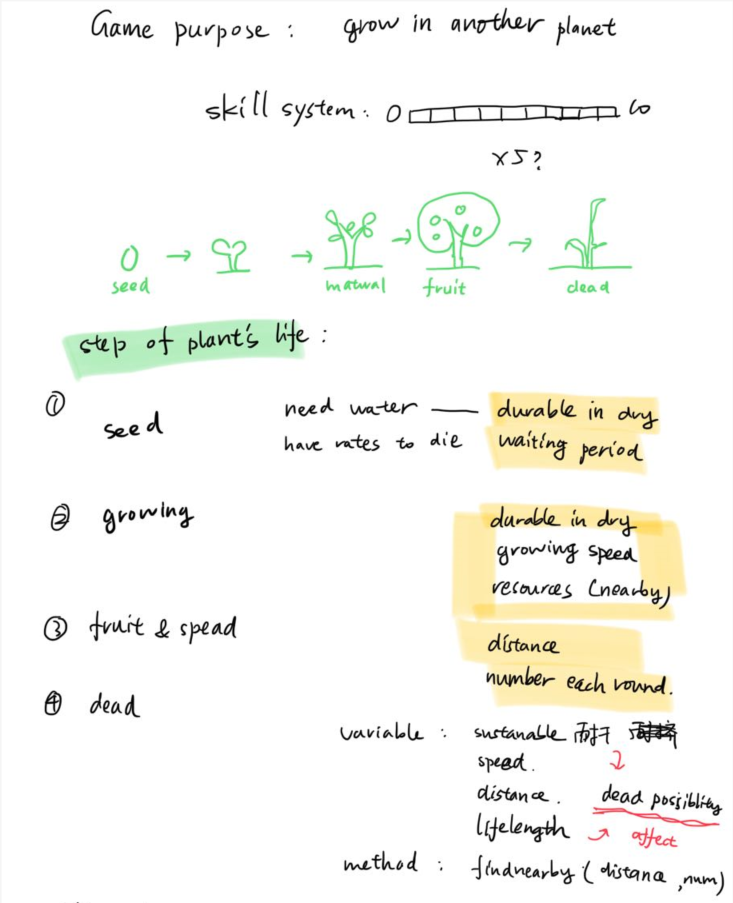Envoy is a video game. It simulates the story of a human being trying to conquer a strange planet with plants on an alien voyage. In the game the player will play the role of a plant scientist who will produce enough oxygen in a limited time to make the planet viable for human survival. In this game, the player has the right to choose the location of the seeds to land and configure the characteristics of the four plants. By choosing the right seed landing site, the player balances the four abilities to complete the task of interstellar expansion. Players play the seed genetic scientists, with the ability to control the growth of plant life forms. With the current level of science, we are not yet able to modify the genes of seeds in real time. But science is moving towards this goal. The history of human development is at the same time the history of human domestication of natural resources. The domestication of plants has allowed humans to have agrarian production methods to replace nomadic civilization, greatly liberating productivity and allowing humans to finally settle and civilization to develop at the edge of the water. Domestication is a process of observation and mating to maintain good traits and consolidate good genes in the community. After humans began to discover genes as the source code for living things, domestication became dramatically faster - no longer passive observation, but active attempts at modification. As long as there is always a large enough collection of data, humans are capable of simulating and determining the role of specific genetic segments in the growth of an organism, and thus optimizing the design to obtain a plant that maximizes the benefits to humans. There are two sides to everything, the technological barriers of genetic modification that exacerbate the technological monopoly of food production, and the genetic technology that is also utilized in the production of biochemical weapons. During Covid-19, backtracking on viral genes became a weapon for politicians to attack each other, and although the public may misjudge the current state of science, it is still evident that the public is concerned about this technology. I am optimistic about genetic technology and have designed such a game, but the difficulty of designing this game is not only to program the simulation of the growth process, but also to constantly balance the various abilities of the plant in order to increase the difficulty of the game. Programming allows me to have super plants at an even rate, but this is not allowed to exist under the original rules of nature. Nature has set some balance for every plant, and blindly modifying plants can turn today's cash crop, into tomorrow's biological invader and destroy the ecological balance. In today's world we face many technical boundaries in biotechnology, and after we overcome them one by one, we will eventually face ethical boundaries that we cannot go beyond.

